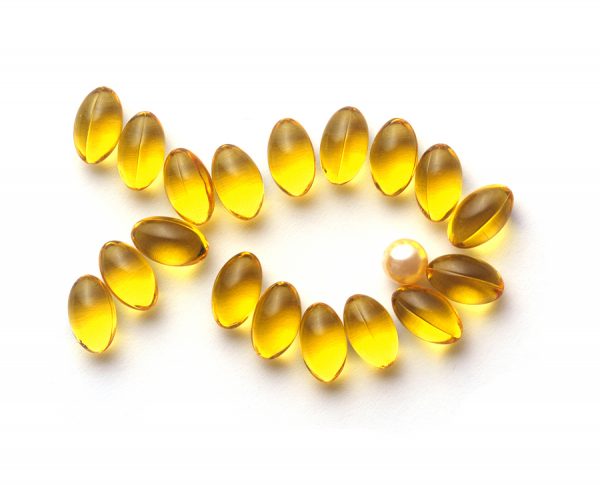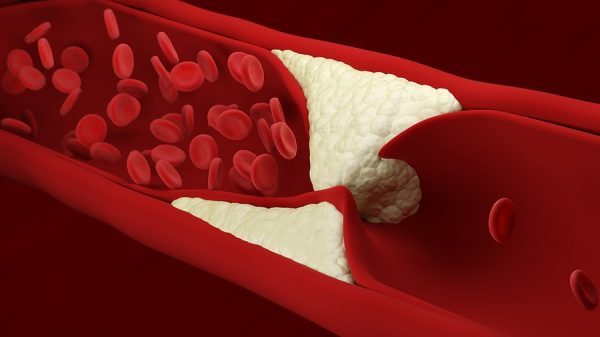By David Blyweiss, M.D., Advanced Natural Wellness
Up until 50 years ago, we didn’t know much of anything about omega-3 fatty acids. The big breakthrough didn’t come until 1971. That’s when researchers compared the eating patterns of Eskimos and Danish people up in Greenland.
What they learned is that the Eskimos had much lower rates of heart disease and a complete absence of diabetes compared to the Danish people. The Eskimos also had significantly lower concentrations of total lipids, cholesterol and triglycerides.
This brought the researchers to the realization that heart disease may not be as genetic as they previously believed. And they were right.
The Eskimos – who ate more whale, seal and fish – consumed considerably more omega-3 fatty acid than the Danes. This high consumption of omega-3s significantly improved lipid levels associated with heart disease. (The Danish people, on the other hand, were eating more foods high in omega-6 fatty acids.)
Since then, the benefits of omega-3 fatty acids on cardiovascular health have been researched extensively. And it’s all good news.
Why Omega-3s are Your Heart’s Best Friend
Omega-3 fatty acids have a positive effect on nearly all aspects of heart disease. They have been proven to…
Lower heart rate and blood pressure. A new analysis in the Journal of the American Heart Association suggests that between two and three grams (2,000 mg to 3,000 mg) daily is the optimal dose of omega-3s for blood pressure lowering.
Improve function of the endothelial cells that line the blood vessels. This is true even in people who already have endothelial dysfunction due to a poor lipid profile, excess weight, metabolic syndrome or who smoke.
Reduce blood clotting, improve plaque stability and reduce plaque formation. If you have a blood clot, or if a clump of plaque breaks away into your blood stream, it can travel to your heart or brain. If it gets stuck in a blood vessel, you can have a heart attack or stroke
Lower triglycerides, reduce oxidized LDL and improve LDL particle size. All of these improvements help keep plaque from forming and building up in the artery walls.
Reduce the chance of a cardiac event. The omega-3s in fish oil increase something called heart rate variability (HRV), which is a predictor of arrhythmia. The better your HRV, the stronger your heart’s ability to withstand and recover from stress. The lower your HRV, the greater your chances of arrhythmia, heart attack, stroke or cardiac arrest.
Fight off inflammation. Omega-3s have the ability to reduce levels of certain inflammatory markers associated with heart disease, including C-reactive protein (CRP) and interleukin-6 (IL-6). CRP, in particular, is a strong predictor of a first-time heart attack, even when cholesterol levels are normal. And elevated IL-6 levels can more than double a person’s life-time risk of heart disease.
That’s a lot of cardiovascular protection!
But there is still more that omega-3s can do for you.
What Else can Omega-3s do?
Omega-3s can improve back, neck and joint pain just as well as non-steroidal anti-inflammatory drugs (NSAIDS). They can also slow down the progression of osteoarthritis – and cut your risk of developing it in the first place.
These fatty acids are also associated with lower rates of dementia. In fact, some data suggests omega-3s can cut the risk of dementia by as much as half, and reduce Alzheimer’s risk by about 40%.
Omega-3 fatty acids can even help reduce the build-up of fat in people with fatty liver disease. In many cases, this can lead to a complete regression of fatty liver.
As far as I’m concerned, everyone should be taking 2,000 mg to 3,000 mg of omega-3 fatty acids every day.
At the same time, I recommend cutting back on foods like vegetable oils, salad dressings, fried foods, margarines and other processed foods that are high in omega-6 fatty acids. These fatty acids are inflammatory, while omega-3s are anti-inflammatory. And they fight against each other for space in your body.
So when you eat too many omega-6s, it displaces the healthy omega-3 fats. That could easily counteract the benefits of omega-3 supplementation.
Look for an omega-3 supplement that contains oil from fresh, wild-caught, deep-sea fish. And make sure it’s been molecularly distilled and tested for purity.
SOURCES:
Bang HO, Dyerberg J. Plasma lipids and lipoproteins in Greenlandic west-coast Eskimos. The Lancet. 1971;297(7710):1143-1146.
Bang HO, Dyerberg J, Sinclair HM. The composition of the Eskimo food in north western Greenland. Am J Clin Nutr. 1980 Dec;33(12):2657-61.
Zanetti M, Grillo A, Losurdo P, Panizon E, Mearelli F, Cattin L, Barazzoni R, Carretta R. Omega-3 Polyunsaturated Fatty Acids: Structural and Functional Effects on the Vascular Wall. Biomed Res Int. 2015;2015:791978.
DiNicolantonio JJ, O’Keefe JH. The Benefits of Omega-3 Fats for Stabilizing and Remodeling Atherosclerosis. Mo Med. 2020 Jan-Feb;117(1):65-69.
Kang JX. Reduction of heart rate by omega-3 fatty acids and the potential underlying mechanisms. Front Physiol. 2012 Oct 30;3:416.
Zhang X, Ritonja JA, Zhou N, Chen BE, Li X. Omega-3 Polyunsaturated Fatty Acids Intake and Blood Pressure: A Dose-Response Meta-Analysis of Randomized Controlled Trials. J Am Heart Assoc. 2022 Jun 7;11(11):e025071.
Zehr KR, Walker MK. Omega-3 polyunsaturated fatty acids improve endothelial function in humans at risk for atherosclerosis: A review. Prostaglandins Other Lipid Mediat. 2018 Jan;134:131-140.
Masuda D, Miyata Y, Matsui S, Yamashita S. Omega-3 fatty acid ethyl esters improve low-density lipoprotein subclasses without increasing low-density lipoprotein-cholesterol levels: A phase 4, randomized study. Atherosclerosis. 2020 Jan;292:163-170.
DiNicolantonio JJ, OKeefe J. The benefits of marine omega-3s for preventing arrhythmias. Open Heart. 2020 Feb 4;7(1):e000904.
Polyakova EA, Mikhaylov EN. The prognostic role of high-sensitivity C-reactive protein in patients with acute myocardial infarction. J Geriatr Cardiol. 2020 Jul 28;17(7):379-383.
Ridker PM. Inhibiting Interleukin-6 to Reduce Cardiovascular Event Rates: A Next Step for Atherothrombosis Treatment and Prevention. J Am Coll Cardiol. 2021 Apr 20;77(15):1856-1858.
Maroon JC, Bost JW. Omega-3 fatty acids (fish oil) as an anti-inflammatory: an alternative to nonsteroidal anti-inflammatory drugs for discogenic pain. Surg Neurol. 2006 Apr;65(4):326-31.
Kuszewski JC, Wong RHX, Howe PRC. Fish oil supplementation reduces osteoarthritis-specific pain in older adults with overweight/obesity. Rheumatol Adv Pract. 2020 Jul 23;4(2):rkaa036.
Kostoglou-Athanassiou I, Athanassiou L, Athanassiou P. The Effect of Omega-3 Fatty Acids on Rheumatoid Arthritis. Mediterr J Rheumatol. 2020 Jun 30;31(2):190-194.
Liu X, Zhuang P, Li Y, Wu F, Wan X, Zhang Y, Jiao J. Association of fish oil supplementation with risk of incident dementia: A prospective study of 215,083 older adults. Clin Nutr. 2022 Mar;41(3):589-598.
Huang TL, Zandi PP, Tucker KL, Fitzpatrick AL, Kuller LH, Fried LP, Burke GL, Carlson MC. Benefits of fatty fish on dementia risk are stronger for those without APOE epsilon4. Neurology. 2005 Nov 8;65(9):1409-14.
Zhu FS, Liu S, Chen XM, Huang ZG, Zhang DW. Effects of n-3 polyunsaturated fatty acids from seal oils on nonalcoholic fatty liver disease associated with hyperlipidemia. World J Gastroenterol. 2008 Nov 7;14(41):6395-400. Parker HM, Johnson NA, Burdon CA, Cohn JS, O’Connor HT, George J. Omega-3 supplementation and non-alcoholic fatty liver disease: a systematic review and meta-analysis. J Hepatol. 2012 Apr;56(4):944-51.






